Colossians 4.2-6
On the Monday before we kill him, some Sadducees corner Jesus at the Temple. After the Pharisees attempt to entrap him with a question about paying taxes to Caesar, the Sadducees try to expose Jesus to ridicule by asking a question aimed at the absurdity of one of the items of his faith, resurrection:
“Teacher, Moses taught, ‘If a man dies having no children, his brother must marry the widow and raise up offspring for his brother.’ Now there were seven brothers among us. The first married and died, and having no offspring left his wife to his brother. So too the second and third, down to the seventh. After them all, the woman died. In the resurrection, therefore, of the seven, whose wife will she be? For they all had her.”
Jesus rebuffs the premise of their question, “You know neither the Scriptures nor the power of God.”
The Sadducees were a sect set apart in Israel in two ways.
First, they were the party charged with the maintenance of Temple. So when Mary’s boy throws his temple tantrum the day before, he threatens not simply their piety but their livelihood.
Second, the Sadducees were distinct in the tapestry of Israel’s religious life for rejecting the hope of the resurrection of the dead. That the Sadducees were peculiar among God’s people for not believing in the resurrection of the dead is but a reminder that the resurrection of the dead is a Jewish belief.
Resurrection is not a Christian belief.
Resurrection is a Jewish belief.
Resurrection is first an item of the faith of Jesus the Jew before it is a claim about the faithfulness of Jesus the Christ. This is important to remember because the resurrection that the Father in fact works at Easter is not the resurrection that the Son had prophesied to Israel, and the difference makes all the difference.
The primary passage in the Hebrew Bible which anticipates the resurrection is in the Book of Daniel, chapter 12. However, the resurrection revealed to the prophet Daniel is both a general resurrection, the resurrection of all rather than a single Israelite, and the resurrection revealed to the prophet was to be a double resurrection, for some a resurrection into the kingdom and for others a resurrection into contempt.
Daniel relays the promise accordingly:
“And many of those who sleep in the dust of the earth shall awake, some to everlasting life, and some to shame and everlasting contempt.”
“The same day,” Matthew writes in his Gospel, "Sadducees came up to him, who say that there is no resurrection, and they asked Jesus a question [about the resurrection].” The Sadducees did not believe in the resurrection like their fellow Jews so believed; however, the Sadducees’s fellow Jews anticipated a resurrection that would be general and double— that is, the resurrection hope was for a resurrection that would be cosmic in scope and conclusive in its stretch, signaling both judgment and redemption.
When God raised the dead, Israel hoped, the work would be universal, encompassing all— every creature under the banner of heaven— and it would be final, the Lord’s last culminating “Let there be…”
In other words, by the Old Testament’s own witness, the first moment of the Risen Jesus’s life should have marked the end of history, with judgment for sinners and justice for the sinned against. The Father should have raised Jesus into the first day of the Last Future not into the third day of this world. As soon as the angel announces to Mary, “He is not here, for he has risen” immediately, right then and there, “every knee should bend and every tongue should confess that Jesus Christ is Lord.” Once Jesus lives with death behind him, Death itself should be no more, “mourning and crying and pain should be no more."
Easter should have been simultaneously the irruption of the end-with-a-capital-E.
On the basis of scripture alone, “there was no real need for this afterwards.” Easter’s afterwards.
Alfred Loisy was a French Catholic biblical scholar in the late nineteenth century. A modernist, Loisy’s revisionist interpretations of scripture and his rejection of the creedal tradition led to his excommunication in 1908.
With biting irony, Loisy once mocked the faith by saying:
“Jesus came announcing the kingdom, but instead it was the church which came.”
Loisy may have been a heretic but on the matter of Easter’s afterwards he is in surprising agreement with St. Luke. In the Gospel of Luke, at his last resurrection appearance, the disciples ask the Risen Jesus, “Lord, is this the time when you restore the kingdom to Israel?” Jesus avoids the question. Jesus does not dismiss the question. He dodges the question. And in place of any answer at all, Jesus promises the gift of the Holy Spirit as the power for the church’s vocation.
In other words, there is and there will be a kingdom.
Just not yet.
The surprise of Easter is not simply that the tomb is empty.
The surprise of Easter is that Easter is not the End.
This is why all four Gospels agree that the first response to the news that Jesus has been raised from the dead is fear. If you believed the apocalypse was now, your sphincters would tighten up too.
Easter is not the end of time— that’s the surprise.
Easter is a meantime.
To wit—
What God does with the dead Jesus is also at once a not doing.
What God does with the dead Jesus is also at once a not doing.
God does not do what what linear-thinking readers of the prophets expected. In raising Jesus from the dead but raising no other, God does not let Jesus’s resurrection be itself the End. What God does with the dead Jesus is simultaneously a not doing. God does not let Christ’s finished work be final.
As Karl Barth writes:
“It might have been quite different. The time which is our time might not have been at all.”
Why does Easter have this afterwards? According to scripture, Christ’s first coming should have been his only and his last coming.
Why the meantime?
When I was a graduate student, I attended a series of lectures the theologian Robert Jenson delivered for undergraduates and faculty members. Though the attendees recognized that Jenson was one of the most brilliant theologians America has ever produced, not every one in the lecture hall was open or hospitable to the claims of Christianity.
Some listeners, though curious, were openly hostile to the gospel.
With a simplicity that hid the depth of his thought, Jenson explained how the entirety of Christian faith is an elaboration on the briefest of messages; namely, that the crucified Jesus lives with death behind him. However, one skeptical student in the lecture hall was undeterred by Jenson’s arguments and persisted in trying to poke holes in his logic:
“Wasn’t the resurrection supposed to signal the conclusion to God’s history? Doesn’t the New Testament indicate that the world was about to end? Didn’t Paul and the apostles expect Christ to return in their lifetimes? Didn’t Jesus even suggest the apocalypse was imminent? Why has God delayed? Aren’t those difficult questions for Christians to acknowledge? Does the church have an answer to those questions?”
The New Testament does not order the apostle Paul’s thirteen epistles according to chronology. Instead the ancient church intentionally arranged Paul’s letters from the longest to the shortest, concluding with Philemon, which is only twenty-five verses in total. The canonical ordering not only ensconces Romans as the interpretive matrix for the rest of Paul’s correspondence, it also allows for his prison letters to be grouped together as a sequential unit, Ephesians, Philippians, Colossians— all letters from jail.
From a prison in Rome, Paul writes to the church at Colossae— a small, insignificant city in Asia Minor. Paul had never visited the church in Colossae; he writes to them because his apprentice Epaphras asked him to do so. After Paul had delivered the gospel to Epaphras, Epaphras had brought the gospel to the Colossians. Like the church at Rome, Paul did not plant the church at Colossae and he knew them not. Moreover, he knew of their struggles only secondhand. Nonetheless, Paul’s letter to the Colossians is not about their challenges as a congregation so much as it is about the elderly Paul, nearing the end of his life, reflecting upon his apostolic office and, in turn, reflecting upon the Colossians’s own calling.
Though he is bound in chains, the apostle marvels at how the word of God is nevertheless unfettered. Just so, Paul entreats the Colossians to pray that the Lord would open a door— even in prison; so that, Paul might have the opportunity to “declare the mystery of Christ.” What Paul requests in prayer from them is what Paul has prayed for them; namely, that God would open doors and equip them to proclaim the mystery of Christ. Verses two through four in the passage are all one sentence in Greek. It’s all one controlling thought; that is, prayer and watchfulness and thanksgiving are all necessary components of the message that seeks open doors.
“Pray for our work that is our message that is the mystery of Christ.”
In his epistles, the mystery of Christ (mysterion tou Christou) refers not to Jesus’s two natures, fully human yet fully divine. The mystery of Christ is not that he was created ex nihilo in Mary’s womb. In Paul’s letters, the mystery of Christ does not mean that Jesus bore our sins his body on the tree nor does it point to the empty tomb. For Paul, the mystery is not even that having unveiled himself completely to dwell among us in the flesh God nevertheless remained hidden from us.
For Paul, mysterion tou Christou refers specifically to the fact that God wields the word of the cross— through his risen body, the church— to address those outside of the covenant. The mystery of Christ is the oddity that God uses the message of Christ and him crucified to include in his covenant the wider world beyond Israel. As N.T. Wright comments on the passage, the mystery of Christ “is the secret plan of God for the salvation of the whole world as this has now been made known in and through Jesus Christ.” Or as Paul puts it at the top of his argument to the Romans, “For I am not ashamed of the gospel, for it is the power of God for salvation to everyone who believes, to the religious first and also to the irreligious.”
“The mystery of Christ “is the secret plan of God for the salvation of the whole world as this has now been made known in and through Jesus Christ.”
The mystery of Christ is the secret, known only by faith, that our odd God uses— is using— this message of cross and resurrection to the end that all shall be saved.
“Wasn’t the resurrection supposed to signal the conclusion to God’s history? Why has God delayed? Does the church have an answer to those questions?”
I turned my gaze from the argumentative undergrad to the white-haired theologian. Robert Jenson revealed the slightest crease of a smile, and finally he responded nonchalantly to the skeptic’s question with a brilliant six word reply.
“Why has God waited?
His answer:
1) Because
2) He
3) Wants
4) To
5) Include
6) You
Nicholas Ayo is a Roman Catholic priest at Notre Dame who has translated a number of the sermons preached by the great scholastic theologian Thomas Aquinas. In his editorial remarks on the sermons, Ayo expresses astonishment at how the problem of unbaptized children and unbelieving adults bedeviled Christians in the Middle Ages. Aquinas was no exception to this puzzlement. Figuratively throwing up his hands, Ayo writes, “The Middle Ages simply did not know what to do with the unbeliever.”
Ayo then critiques the limitations of Aquinas’s preaching with an apparently offhand but seismically suggestive comment. He writes that Thomas’s logic did not take sufficient account of “the infinite resourcefulness of the God who wishes to save everyone.”
“The infinite resourcefulness of the God who wishes to save everyone.”
The surprise of Easter is not simply that the tomb is empty. The surprise of Easter is that Easter is not the End.
There is no real need for Easter’s afterwards.
After all, the life history of Jesus Christ in his obedience unto death— even death on a cross— just is the reconciliation of God to world and of the world to God.
It is finished.
It is perfected.
It is completed.
Its accomplishment as such awaits no application. Its potency awaits no actualization. Its singularity awaits no development. All sinful resistance to grace has been unalterably undone, defeated. He who actualized our reconciliation in his death also attests to our reconciliation in his life beyond death.
He who was shut up in his tomb with our sinfulness has burst forth in the garden with our righteousness.
Thus, nothing in all of creation can ever now separate us from the love of God in Christ Jesus our Lord.
There is therefore now nothing else for God to do except include you.
Karl Barth calls this meantime of Easter’s afterwards “the Time of the Community.”
Barth writes:
“The church is the community of the God who wills that all shall be saved and come to a knowledge of the truth. It has its faith and, knowing in faith for all others, it knows what it has to say to all others…all time might have terminated then [on Easter Day]. But this did not happen. It is better not to say that time continued, but rather than a further time, a new time commenced…Easter time…
Let us imagine for a moment that there were no such end-time. In that case, God would not have caused any new and further time to begin. He would have wound up all time and the existence of heaven and earth and everything within them and begun the eternal Sabbath…But this means that He would not have expected any further human response to what He accomplished and revealed in Jesus Christ…in this case, the reconciliation of the world with Him would have been a unilateral decision and exercise of force, the revelation of it a dictatorial declaration of will, and the whole a sovereign overpowering of humanity to His glory…
Easter’s afterwards is evidence that He did not do something supreme and final which renders quite superfluous any correspondence on the part of man…What is the purpose of this new and further time after the reconciliation of the world with God?
Its purpose is obviously this— that God will now allow His last word to be fully spoken or the consummation determined and accomplished and proclaimed by Him to take place in its final form until He has first heard a human response to it, a human Yes; until His grace has found its correspondence in a voice of human thanks from the depths of the world reconciled with Himself; until here and now, before the dawning of his eternal Sabbath, He has received praised from the heart of His human creation.
That is the greatness of His grace. That is the reach of His condescension. That is the seriousness of the solidarity to which He has committed Himself with us men in the person of His Son. He does not will to be without man, to have become his Reconciler and to become his Redeemer over the head of man. He wills a body for his Son. He wills open eyes and ears for what took place in His death…He wills human hearts which see this turning, and human tongues which confess it.
He wills not only that the justification which has taken place in Jesus Christ should have taken place, but that that the news of it should be sounded out and should meet with faith. In order that this may happen, He gives the world still more time.
In other words, rather than bring the kingdom, God sends the church. Which means, you are a part of the infinite resourcefulness of the God who wishes to save everyone. The love that is God longs to be loved in return. He wants his Yes to us in Jesus Christ to be reciprocated with a Yes from all to Jesus Christ. He wants all the earth to add their alleluias to his Easter work. And our odd God has the notion to get those alleluias through you. You who are his Son’s risen body. Through the doors he opens in front of you.
Quite simply—
You are the reason there is still time.
“Wasn’t the resurrection supposed to signal the conclusion to God’s history? Why has God delayed? Does the church have an answer to those questions?”
Robert Jenson gave his six word reply, itself a distillation of what Paul calls the mystery of Christ, “Because he wants to include you.”
I sat in the lecture hall and saw the argumentative undergrad furtively raise his hand to rebut the theologian, but Jenson smiled again and quickly said, “And so, you see, the answer to the question of God’s delay is also the answer to your last question. The church not only has an answer to the question of God’s delay the church is God’s answer to the question.”
When I was a student in seminary, I juggled a number jobs and side-hustles to pay the bills including a gig at the campus mailroom. One of my tasks every afternoon was to deliver the mail to the off-campus offices and buildings. The day after I attended Robert Jenson’s lecture I delivered mail to him at the Center for Theological Inquiry.
His bundle was rolled up with thick rubber bands. Knocking, I handed it to him. Usually, I was nervous in his presence and did not linger. But I gave him his mail. He said thank you. I said you’re welcome. And then I stood there, looming at his desk.
He looked up at me and I saw the same slight smile break across his face.
“I attended your lecture yesterday,” I said.
“Indeed,” he said.
“Because he wants to include you,” I repeated his reply, “Are you suggesting that, in the End, all will be saved?”
He smiled again.
“Sometimes I catch myself thinking I’m a universalist…” and his voice trailed off and he chuckled to himself, “You’re a Christian, I take it?”
I nodded.
“Well then, my boy, rather than speculate about what God will do ultimately one day in the future, why don’t you do something about what we know God, in fact, has done? We know God desires to save all and we know he has allotted precisely this time for believers like yourself to do it. So, rather than sit in lectures and posit speculative questions that put all the burden on God, why don’t you go and do the work God has given you to do?”
I stood mute.
“Go,” he said smiling and made the sign of the cross.
“Go and gospel another person. Add someone, anyone, to that all we know the Lord desires.”
Come to the Table.
Feed on Jesus by faith.
Because, literally, the only reason we are here is for you to give him to an other.




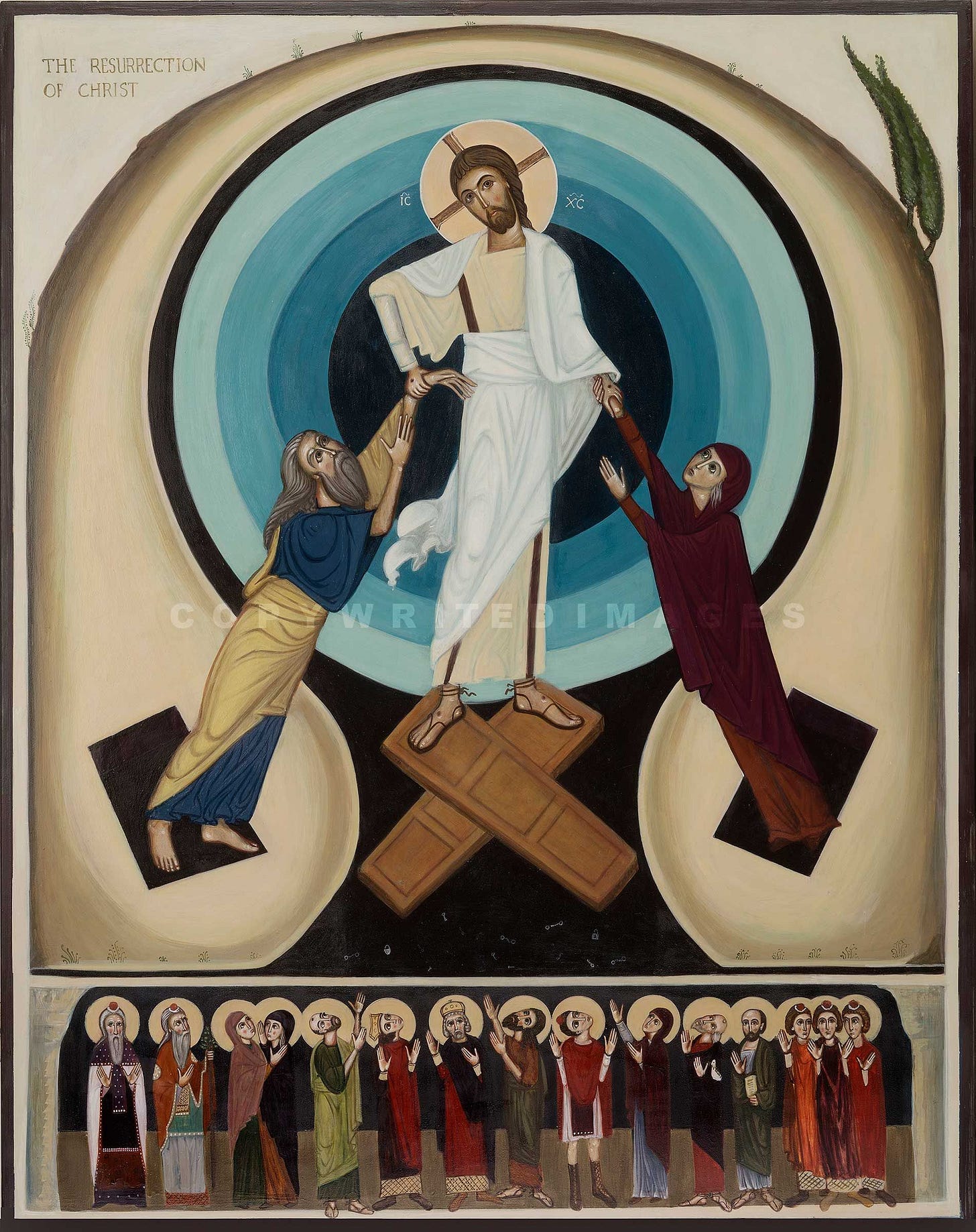
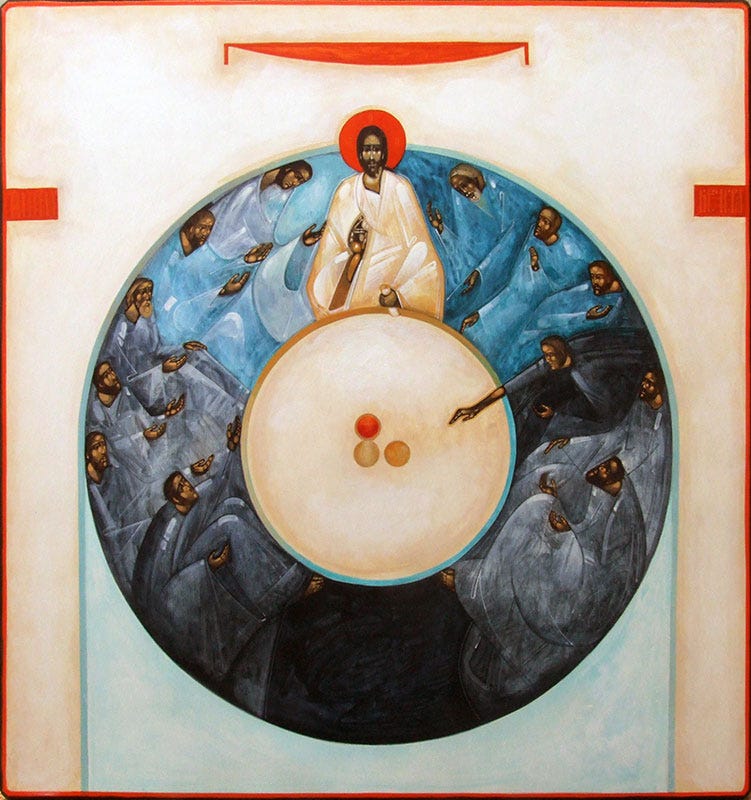
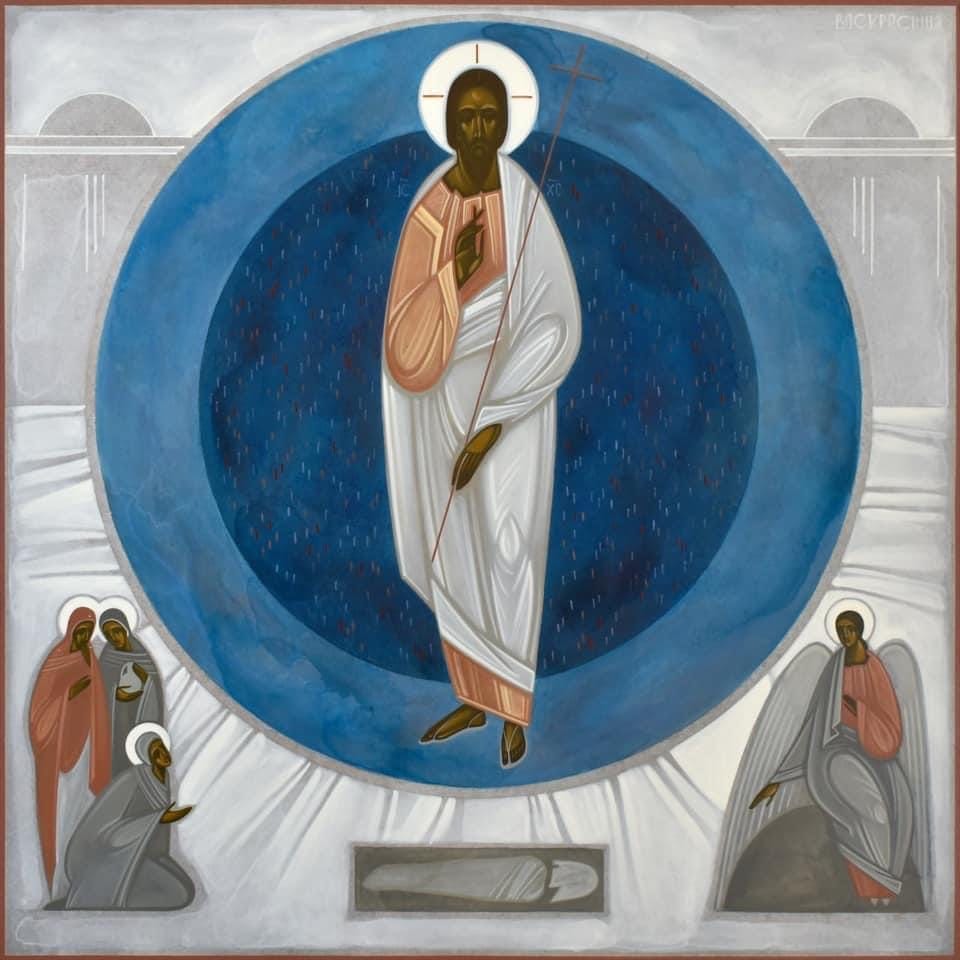
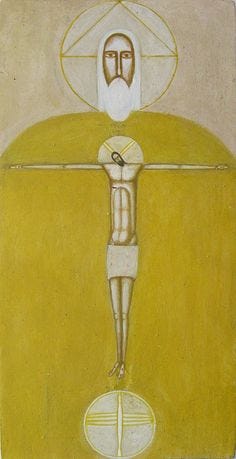
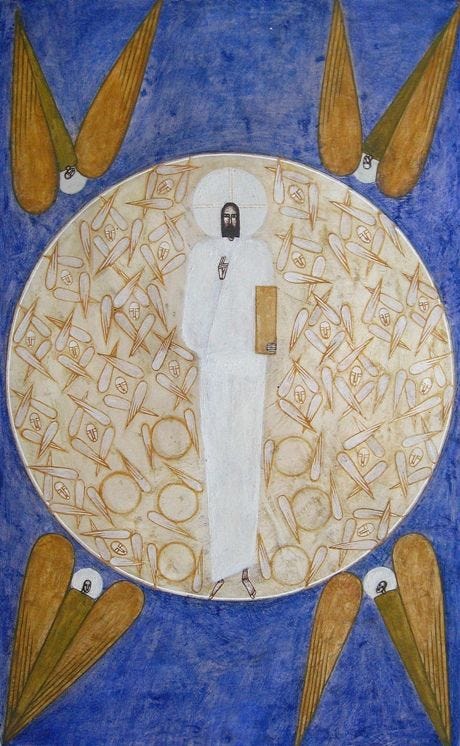
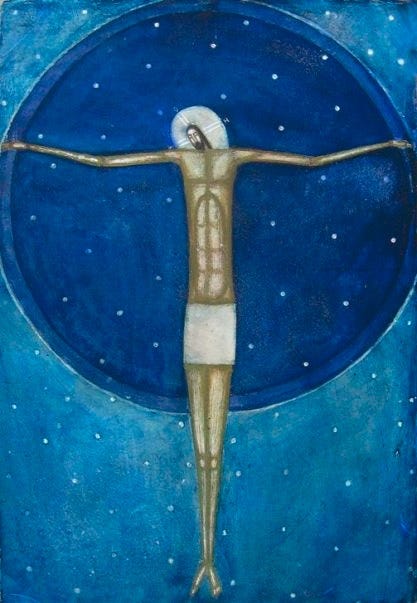
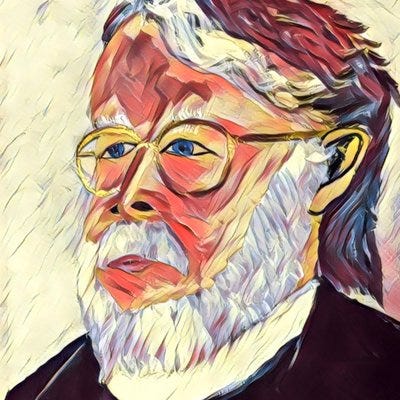
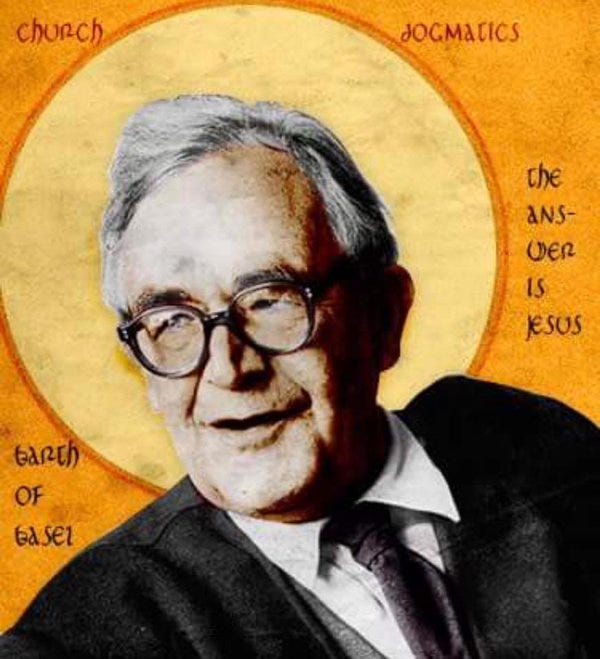
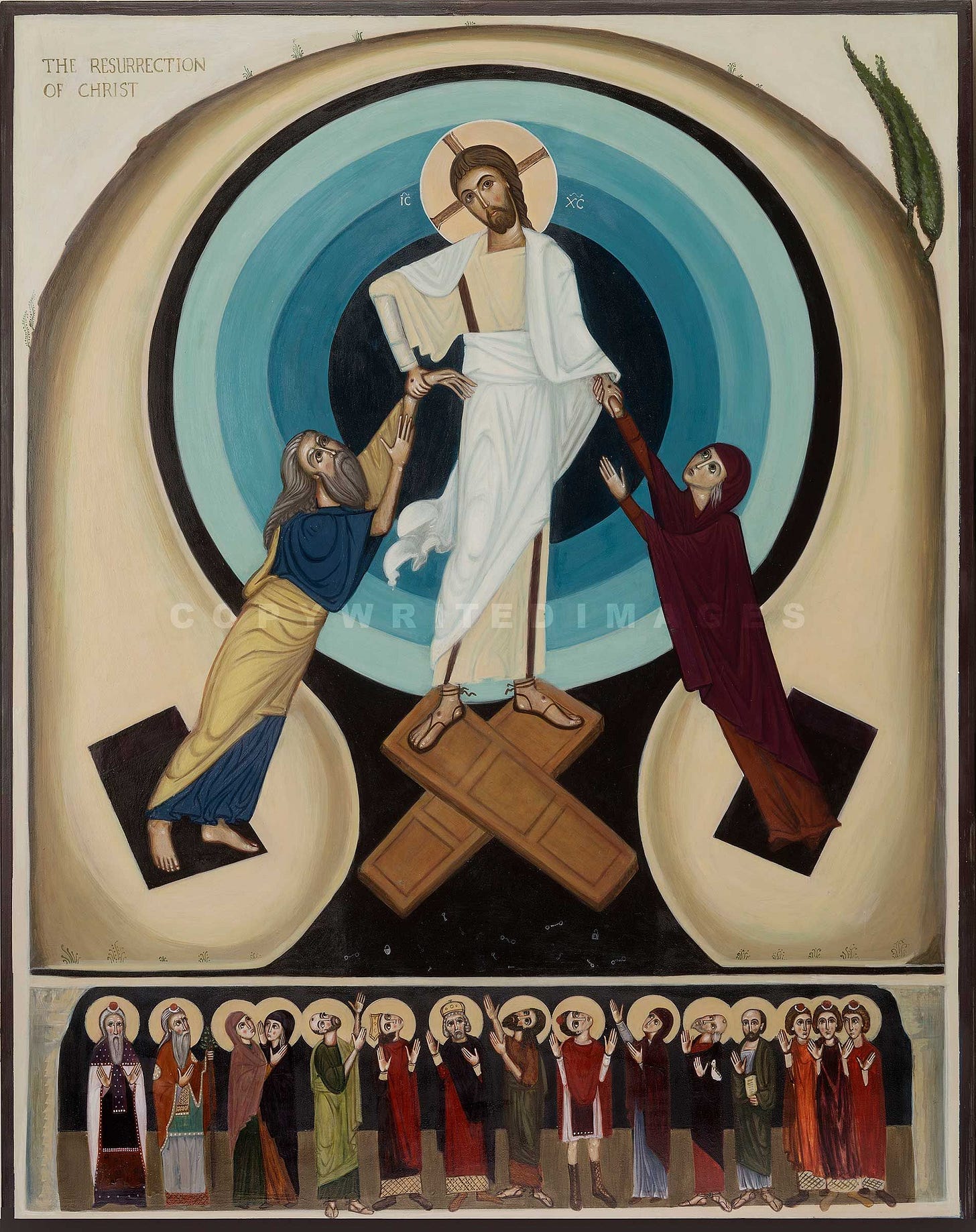










Share this post